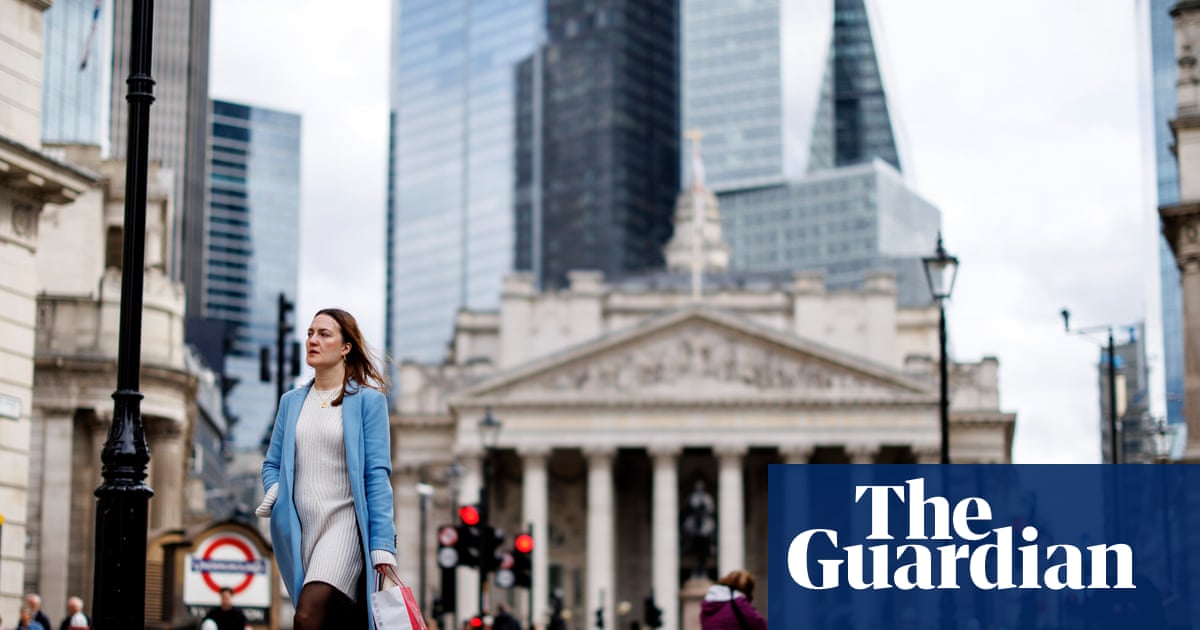The drugmaker Indivior has become the latest company to abandon its listing in London, heaping further pressure on theLondon Stock Exchange(LSE) to reinvigorate itself.
The Virginia-based company, which makes the opioid addiction treatments Sublocade and Suboxone, switched its main stock listing to the US last year, but now plans to cancel the secondary listing it had retained in London.
Indivior said on Monday that in making the decision it had considered the liquidity and trading volumes of its shares on the US’sNasdaqexchange compared with the LSE; the location of its shareholders; and the cost and administrative requirements related to the London listing.
More than 80% of Indivior’s net revenues come from the US, which has been in the grip of anopioid crisisfor decades, after a rise in the use of opioid painkillers led to increasing addiction rates and a sharp rise in fatal overdoses.
David Wheadon, the Indivior chair, said: “A single primary listing on Nasdaq best reflects the profile of Indivior’s business. We appreciate the support received from shareholders for this initiative and look forward to capitalising on the expected benefits of this move, including reductions in cost and complexity.”
The London-listed share price fell by 2% to 925.7p on Monday, giving Indivior a market value of nearly £1.2bn.
The LSE has been hit by an exodus of companies, such as the Anglo-German travel company Tui, whichopted for a sole listing in Frankfurtlast year.
“The London Stock Exchange will be upset it is losing another big name,” said Russ Mould, the investment director at AJ Bell. “It means the pressure is on to attract new names to the market and keep existing ones.”
The blow was softened as the LSE welcomed Anglo American’s $11bn (£8bn) platinum spin-off Valterra, which became independent from the mining company. Valterra is listed in South Africa and will now have a London listing as well. Anglo retains a 19.9% stake for now but has promised to sell it down over time.
Mould said he had expected Indivior to exit London entirely, as its business is focused on the US, where most of its shareholders are based. The company had been listed in London because it was spun off in 2014 from the UK consumer goods group Reckitt Benckiser, itself listed in London.
Indivior appointed the pharma veteran Joseph Ciaffoni as chief executive in February, replacing Mark Crossley after warning of a sharp drop in revenues this year. Last year it posted 9% sales growth to almost $1.2bn.
This was driven by Sublocade, a prescription medicine that is injected once a month by health professionals to treat addiction to opioid drugs in adults, alongside mental health support. Suboxone is a similar drug but is given as tablets or as a film that dissolves when placed under the tongue.
Sublocade’s 2025 sales are expected to be flat compared with last year, while Suboxone film faces a 50% slump in sales because of competition from generic drugs, and Indivior will discontinue Perseris, its once-monthly schizophrenia drug.
Sign up toBusiness Today
Get set for the working day – we'll point you to all the business news and analysis you need every morning
after newsletter promotion
Indivior also said in Februaryit faced “numerous lawsuits”, including an allegation that Suboxone film was “defectively designed and caused dental injury”.
There have also been cases brought by shareholders in the UK and US. Indivior faces a lawsuit from Wirral council, which administers the Merseyside Pension Fund, in London’s high court over alleged false marketing of Suboxone. The case was thrown out in 2023; Wirral council appealed, and Indivior said in February it intended to “vigorously defend” itself.
In 2019, the US justice departmentcharged Indiviorwith fraudulently claiming Suboxone film was better and safer than similar drugs.
Its former parent, Reckitt,agreed to pay a $1.4bn fine to settle the casein July 2019, without any admission of wrongdoing, while Indiviorsaid in 2020that it had “pleaded guilty to one count of making a false statement relating to healthcare matters in 2012” and that it would make payments to federal and state authorities totalling $600m over seven years.
Shaun Thaxter, the former Indivior chief executive,was sentenced to six monthsin federal prison in 2020 after pleading guilty to his role in a scheme to secure Medicaid coverage for Suboxone film by misleading officials about its dangers to children.
